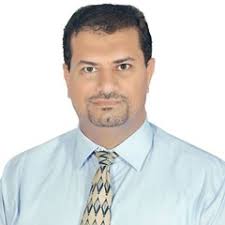It does not seem that either of the sides in the Iraqi crisis, the Sadrist Movement or the Coordination Framework, have the desire to put an end to the political impasse in the country, due to both sides sticking to the mechanism they believe is better to form a new government, nearly seven months after the legislative elections. Since those elections last October, the two parties entered a new phase in the political dealings that seem to have deviated from the familiar political process, which proceeded and aligned with commitments and consensus, which were all broken in a moment of intense disagreement between Muqtada Al-Sadr and his political partners following the elections, plunging Iraq into a political crisis and perhaps an unprecedented impasse.
The political class in Iraq realises that the consensus that effectively controlled the political process has ended irreversibly, even if some of them seem to promote the possibility of consensus between the two Shia parties. Neither Al-Sadr will agree to reach a consensus with the Coordination Framework, nor will the latter agree to follow a Sadrist government, making the current crisis a storm, in one way or another, for the remnants of a political process that, from the first day, was born lame.
Behind the political scene, the Shia political parties may agree, without announcement, to move the situation with minimal losses, by keeping the government of Mustafa Al-Kadhimi, provided that this is only for the purpose of conducting business. Which is what the Coordination Framework wants, but not what Al-Sadr wants, as Al-Kadhimi can work to clip the wings of the deep state led by former Prime Minister Nuri Al-Maliki, which was a wake-up call to the Coordination Framework. So they rushed to pressure the Federal Court, which relented and accepted to issue a decision confirming that the Al-Kadhimi government had no right to issue executive decisions outside its specific authority to conduct business. This angered Muqtada Al-Sadr, and he responded with a fiery speech, last week, which was considered the strongest speech directed at the Coordination Framework forces, which he accused of obstructing the interests of the people, by obstructing the formation of the government and their inability to move towards forming the government.
READ: Iraq Shia militia accuses Kurdish PM of training militants with Israel support
In view of this, Muqtada Al-Sadr’s chances of moving towards achieving a national majority government, not a consensual one, appear to be greater, as he is relying on overwhelming popularity that believes in him, as well as an alliance with other forces and parties in the political process from outside the Shia political system. This is a reference to the Sovereignty Alliance, led by Parliament Speaker, Muhammad Al-Halbousi, as well as the strongest Kurdish party, i.e., the Kurdistan Democratic Party (KDP) led by Masoud Barzani.
On the other hand, the ability of the Coordination Framework to proceed with disrupting the national majority government seems to be based, in principle, on large Iranian support that contributes, from time to time, to achieving the required pressure on the various forces allied with Muqtada Al-Sadr, in order to rein in the coalition seeking to form a national majority government. While the political forces in Iraq struggle in search of their interests and the interests of their sponsors, in the background appears a bleak picture of the Iraqi people, who seem to be sleeping at the mouth of an angry volcano, waiting for the spark that can ignite and engulf everything.
Iraqi Finance Minister, Ali Allawi said in a televised statement a few days ago, that Iraq’s financial surplus could reach about $40 billion at the end of this year, benefitting from the oil price boom, as well as from OPEC allowing Iraq to export a total of 4.5 million barrels per day. However, this financial surplus does not find its way to the reality of the services provided to the Iraqis, as the electrical network has been suffering from frequent interruptions for days, and the hours of daily electricity cuts have increased in the hot and dusty summer weather, as well. The reason for this is that Iran cut off part of the gas supply to Iraq due to its failure to pay $1.6 million dollars owed to Iran. The funeral of Muthaffar Al-Nawab almost turned into the beginning of a new popular revolution, as angry youth threw shoes at Al-Kadhimi’s car, not to mention chants of “robbing the people” directed at the government and parties.
All of this indicates that there are signs of an upcoming revolution and that the ruling class, with its government and militias, may succeed in suppressing it, as it did with the October uprising. However, what is certain is that the surviving political class in Iraq that is struggling to form a new government without paying attention to the interests of its people will accelerate this revolution. It will lead to more confrontation between the political class and parties on the one hand, and the people on the other. The political stalemate in Iraq has lasted longer than expected, and there seems to be no options on the horizon. Will we witness an understanding that will bring the political class out of its crisis without pulling Iraq out of it, or do the people have a different opinion?
This article first appeared in Arabic in Al-Araby Al-Jadeed on 24 May 2022
READ: Daesh attacks kill 12 civilians in Iraq
The views expressed in this article belong to the author and do not necessarily reflect the editorial policy of Middle East Monitor.

![A group of people gather at Tahrir Square during a demonstration to protest against the tension between demonstrators and supporters of the leader of Sadrist movement Moqtada al-Sadr, at a demonstration in the southern province of Nasiriyah last month, on December 04, 2020 in Baghdad, Iraq [Murtadha Al-Sudani - Anadolu Agency]](https://i0.wp.com/www.middleeastmonitor.com/wp-content/uploads/2020/12/20201204_2_45693739_60325962.jpg?fit=920%2C613&ssl=1)







